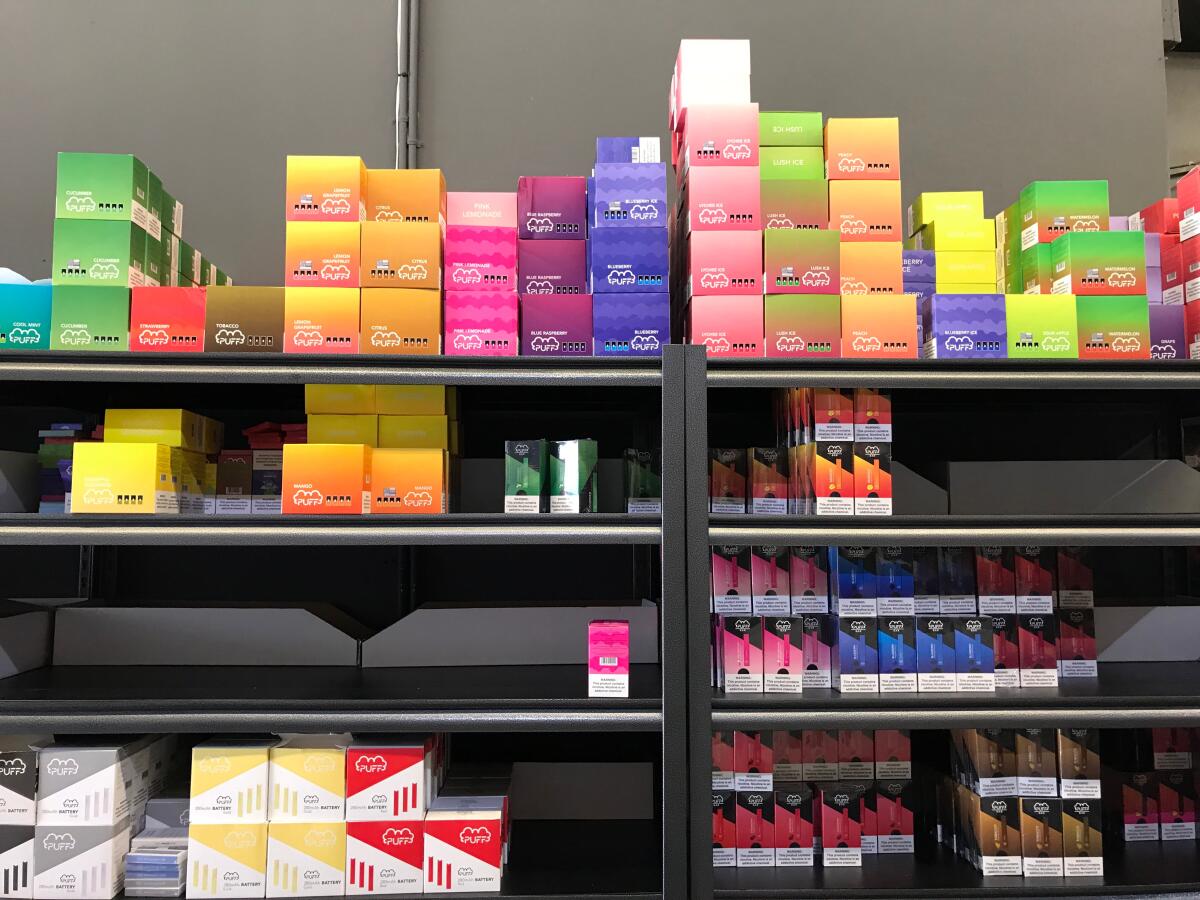Supreme Court upholds California ban on sale of flavored tobacco products

- Share via
WASHINGTON — The Supreme Court on Monday rejected a last-minute plea from the tobacco industry and cleared the way for California to enforce a statewide ban on the sale of most flavored tobacco products, including menthol cigarettes.
The court’s action has the effect of upholding a measure passed by the Legislature in 2020, which in turn was approved by 63% of voters in November. It is due to take effect next week.
The outcome is a victory for anti-tobacco advocates who called for cracking down on e-cigarettes and eliminating youth-friendly flavors such as bubble gum, cotton candy and cherry that could lure kids to use tobacco.
California joins Massachusetts and New York in prohibiting the sale of flavored tobacco.
The tobacco industry spent heavily on lobbying and ad campaigns to defeat the California legislation and the subsequent ballot measure.
When that failed, the industry sued to stop or delay the measure. The industry’s lawyers argued the state ban conflicted with a law adopted by Congress in 2009 authorizing federal regulation of tobacco products.
The tobacco companies lost before U.S. District Judge Dale Fischer in Los Angeles and the 9th Circuit Court of Appeals on the grounds that the law preserved the authority of states and localities to prohibit the sale of tobacco products.
Los Angeles, San Francisco and Sacramento have already adopted local bans on flavored tobacco.
Washington attorney Noel Francisco, who served as U.S. solicitor general under then-President Trump, filed an emergency appeal with Justice Elena Kagan on Nov. 29, asking her and the high court to stop California’s statewide ban from taking effect.
“An injunction will preserve the decades-old status quo, thereby allowing this court time to decide the merits without letting loose the grave irreparable harm that California’s law will inflict,” he wrote in R.J. Reynolds Tobacco vs. Bonta. Without such an order, he said, the tobacco companies “will be shut out of one of the nation’s largest markets for flavored tobacco products.”
He said if enforcement were put on hold, the court could then agree to hear the case in the spring and decide whether the federal law conflicted with the California measure.
Kagan, who oversees appeals from the 9th Circuit, asked for a response from California Atty. Gen. Rob Bonta, which was filed on Tuesday.
Bonta noted that no judge has agreed with the tobacco industry’s claims, and said it is time for “allowing the will of the voters to take effect, as opposed to preserving a status quo that imperils the health of more young people in California with each passing day.”
Kagan referred the RJR appeal to the full court, which issued a brief order denying it without comment and with no dissents.
“The court was absolutely right to deny R.J. Reynolds’ aggressive and unreasonable effort to stall California’s new law,” said Joelle Lester, director of tobacco control at the Public Health Law Center in St. Paul, Minn. “This issue has been extensively litigated and federal circuit courts have uniformly uphold the local authority to protect health in this way.”
More to Read
Get the L.A. Times Politics newsletter
Deeply reported insights into legislation, politics and policy from Sacramento, Washington and beyond. In your inbox twice per week.
You may occasionally receive promotional content from the Los Angeles Times.











